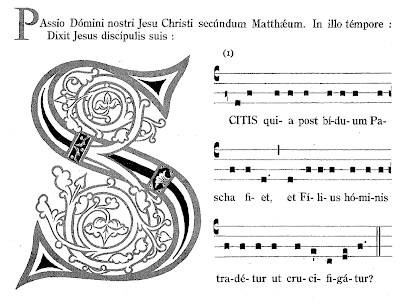 For me personally, the least controversial aspect of the new translation is the restoration of “And with your spirit” as opposed to the street-talkin’ “And also with you.” In fact, I was disappointed that we are not to say, “and with thy spirit” because this is the phrase one hears most commonly in literature and legend. In any case, the transliteration of the Latin is most welcome.
For me personally, the least controversial aspect of the new translation is the restoration of “And with your spirit” as opposed to the street-talkin’ “And also with you.” In fact, I was disappointed that we are not to say, “and with thy spirit” because this is the phrase one hears most commonly in literature and legend. In any case, the transliteration of the Latin is most welcome.
But does it make sense? This is the question that got us in such trouble in the first place, for it implies a kind of liturgical rationalism and a mandate to come to understand and thereby approve — construct — every aspect of the liturgy. The rationalist project requires that we throw out as ancient cruft all that strikes us as odd and only retain that which makes sense to us in our generation. Here we have a serious problem because the liturgy itself is larger than one generation. It stretches back into a history the details of which grow foggier the early we go. More than that, there is an element of the divine at work in the development of liturgy, and this means that ultimately it might include words, rubrics, and even music that is beyond human comprehension. This is why a good rule is: defer to tradition. Changing things risks doing violence to a divine thing.
In any case, and understandably, people do want an explanation for the modern move to “and with your spirit,” and Fr. Austin J. Milner has provided a beautiful one today. The phrase is an ancient greeting, unique to Christianity, and intended to underscore our conviction that the spirit of God exists in every human person. This is certainly in contrast to the belief in the ancient world, which lacked this kind of mystical universalism at its ethical core.
This is such a beautiful explanation, one that helps underscore ideas that we too often take for granted: the dignity of the human person, the universality of human rights, the breath of God as the source of rationality, and much more. All of these were the great contributions that Christianity made to the world. I’m happy to read this explanation so that I can say these words with greater appreciation – and this is precisely the best use of these kind of studies, not to call into question a tradition but to shed light on its meaning and implications.
This article should certainly be shared with all Catholics.
By the way, this was apparently Fr. Milner’s last article that he wrote before he died.


 For me personally, the least controversial aspect of the new translation is the restoration of “And with your spirit” as opposed to the street-talkin’ “And also with you.” In fact, I was disappointed that we are not to say, “and with thy spirit” because this is the phrase one hears most commonly in literature and legend. In any case, the transliteration of the Latin is most welcome.
For me personally, the least controversial aspect of the new translation is the restoration of “And with your spirit” as opposed to the street-talkin’ “And also with you.” In fact, I was disappointed that we are not to say, “and with thy spirit” because this is the phrase one hears most commonly in literature and legend. In any case, the transliteration of the Latin is most welcome.